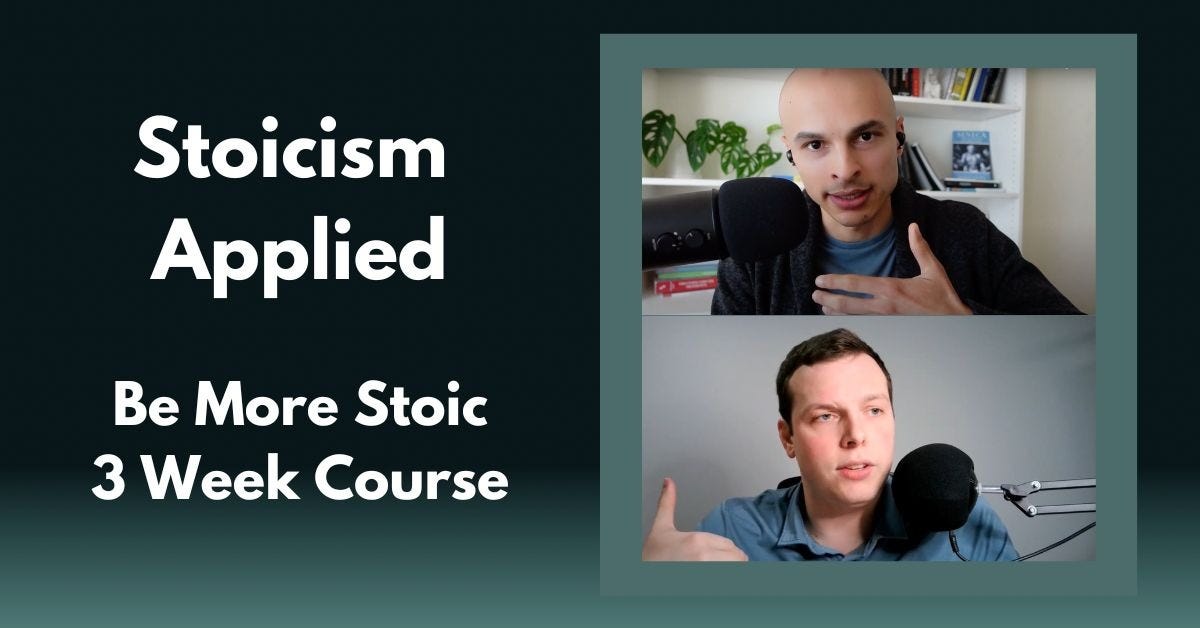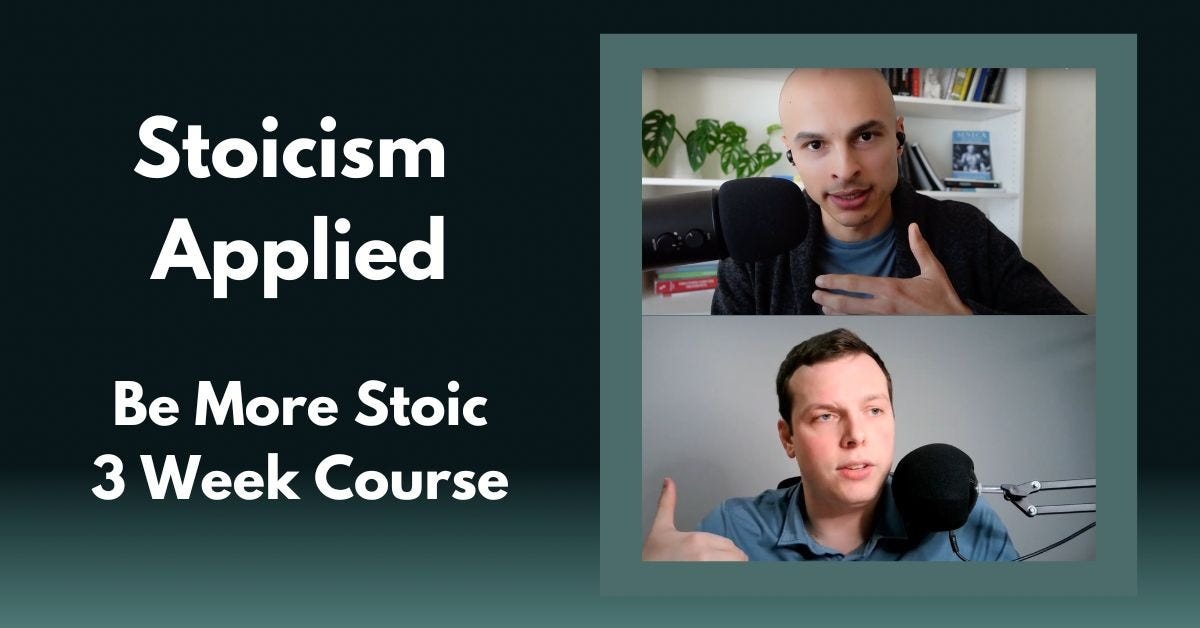The Three Domains of Life
Understanding the 3 disciplines of Stoicism
Welcome to The Stoa Letter, the newsletter on Stoic theory and practice.
Every week we share two emails to help you build resilience and virtue with ancient philosophy. Each email includes one meditation on Stoic theory, one action to do in order to become more Stoic, and links to the best resources we’ve found.
🏛️ Theory
A Roman emperor learned Stoicism from a former slave. Epictetus taught Stoicism through three disciplines: judgment, action, and desire. The Stoic emperor Marcus Aurelius captures each of these in his line:
It is enough if one’s current belief is true, if one’s current action has the common good as its objective, and if one’s current state of mind is willing acceptance of every externally caused thing that happens.
Marcus Aurelius, Meditations 9.6
The discipline of judgment is all about seeing things clearly. It involves thinking carefully, deliberating with calm, and only agreeing with our first impressions when they’re correct.
By pausing, avoiding distractions, and skillfully aiming ourselves towards knowledge we hone our ability to think and live well.
The discipline of action concerns decision-making. What matters to the Stoics is the moment of choice – they know that the results are not guaranteed. Indeed, this is why some translators use the term “impulses to action”– even though it’s a clunky phrase. The idea of “impulses to action” reminds us that just because we make a decision does not mean our body, let alone the world at large, will follow our intentions.
As Marcus Aurelius notes, the discipline of action concerns promoting the common good. Our decisions are good when they’re compassionate and just.
The essence of the discipline of desire lies in what we value. We’re unhappy because we value things that are not up to us and constantly scramble to avoid the inevitable.
The discipline of desire re-orients our dreams and desires towards excellence. Especially, excellence in what is up to us: our judgments and decisions. Everything else is indifferent. We should focus on using them well and embracing events that are out of our control.
Although, in his maxim above, Marcus Aurelius places the discipline of desire last, Epictetus puts it first. The discipline of desire calls us to radically change ourselves and what we want. In that way, it’s the fuel behind the other two disciplines.
Yet all three are central for every Stoic.
🎯 Action
As you go throughout your day, pause, and remind yourself of the three disciplines: desire, action, and judgment. Move closer to practicing them in every moment.
🎺 Stoicism Applied – The Course
Michael Tremblay and I are officially opening enrollment for our live course this Oct-Nov!
In it we’ll take a deep dive into all three Stoic disciplines. It’s for anyone looking to seriously become more Stoic with others.
Learn more here. Space is limited.

Stoicism Applied by Caleb Ontiveros and Michael Tremblay on Maven
Build resilience and virtue with ancient philosophy.
maven.com/stoa/stoicism-applied

🔗 Resources
💬 Marcus Aurelius cites Epictetus’s formulation multiple times throughout Meditations. For example:
He said that we must discover an art of assent and, in the sphere of impulses, must pay special attention to make sure that every impulse is conditional, contributes to the common good, and is commensurate with the value of what it’s an impulse for. He also said that we should avoid desire altogether and bring aversion to bear on nothing unless it’s up to us.
Marcus Aurelius, Meditations 11.37
The “he” here is, of course, Epictetus.
📖 Gregory Hay’s translation of Meditation 9.6 may be, in a technical sense, less accurate than Robin Waterfield’s above, yet it’s more beautiful, and in that sense, perhaps more accurate:
Objective judgment, now at this very moment. Unselfish action, now at this very moment. Willing acceptance—now at this very moment—of all external events. That’s all you need.
Marcus Aurelius, Meditations 9.6
Both translations are excellent to have on hand.
What did you think about today's letter?
🏆️ Share The Stoa Letter
If you find what we’re doing useful, please share it. Just have people sign up with your link below.
Share The Stoa Letter
{{rp_personalized_text}}
Or copy and paste this link to others: {{rp_refer_url_no_params}}
Get hundreds of Stoic meditations and lessons with the Stoa app (free download)

